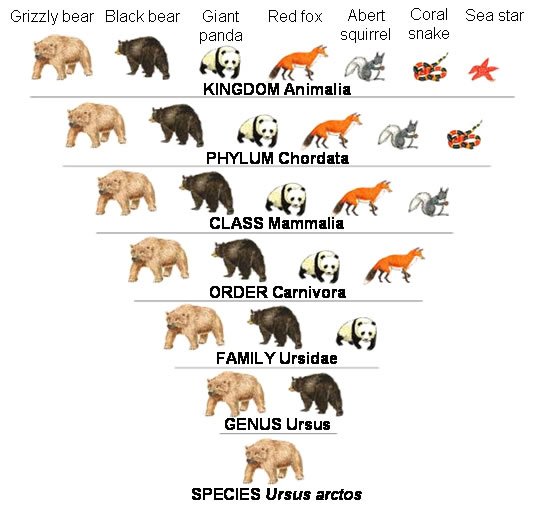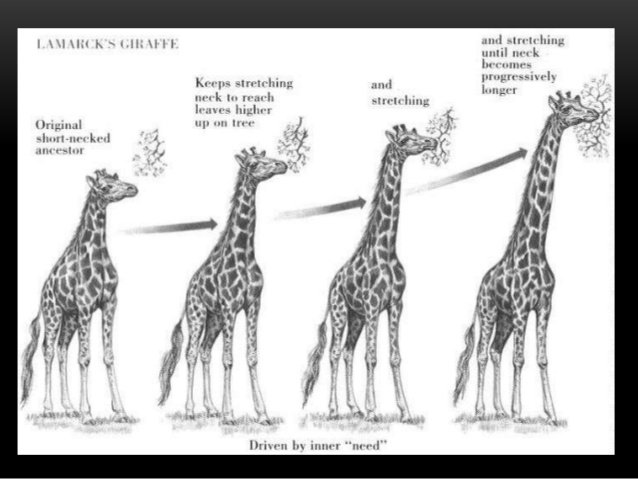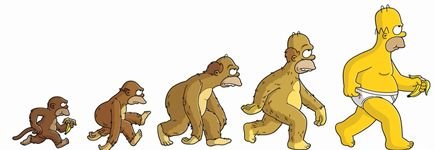In the part 1 we introduced two major concepts related with idea of Evolution.
That being, the Ladder of Complexity, and the Tree of Life.
This is part 2, and I want to dedicate it to the modern synthetic theory of Evolution.

Over hundreds of years in the search for answer to the question of the biodiversity of organisms on earth,
thinkers, philosophers, and scientists proposed a number of explanations.
Some of them religiously based, other more secular.
It certainly was not like we imagine by looking at the present, modern disagreements over diversity of life.
Today we mostly observe religious claims of creation
and attempts to undermine the strongest theory in biology every formulated.
That just wasn't the case in the early days.
Let's have a short history lession:
In the early 18th century, still prevalent were ideas based on Scala Naturae rooted in part on Aristotle's and Plato's works, aswell as theology.
Great chain of beings, a Ladder of beings if one will,
Scala Naturae was composed of off 6 major levels of perfection,
divided into many subcategories,
all on a spectrum with God on the top and Minerals on the bottom of the ladder.
Humans were above land animals, land animals above sea animals, all animals above plants, so on so forth.
Carolus Linnaeus [1707-1778], the father of systematics, inventor of binomial system of classification.
All living organisms would be divided into groups based on their similarities and so his taxa were formed.
Genus would be a grouping of organisms very similar in their anathomy, and
specie would be individuals which are seemingly anatomically indistinguishable,
i.e. Canis lupus latin name for the gray wolf
canis is the name for genus,
lupus is the name of the specie.
Currently the system is trinomial introducing the level below the specie.
It can be referred to as subspecie, or race.
Homo sapiens, is a specie of genus homo,
Homo sapiens sapiens is the modern human,
Homo sapiens neanderthalensis is the neanderthal man.
It's the same specie, but we recognise that differences between two groups were significant.
#Linnaeus was working from a creationist assumptions and was reluctant to recognize implications of his research.
Idea of genus and specie predate Linnaeus' work,
however, he was the one to include Humans in the world of nature.
Concept which was highly controversial.
Whether Linnaeus would like that or not, his works were impotant to formation of modern biology and genetics.
A significant discovery of his were plant hybrids as a result of cross pollination,
contrary to the religious idea that species are fixed the way they are and unchanging.
Erasmus Darwin [1731-1802],
the grandfather of famous Charles Darwin wasn't very vocal about his ideas,
he definitely flirted with the idea of the evolution in the natural world.
He never formed a hypothesis as to what caused the change.
Jean-Baptiste Lamarck [1744-1829],
unlike Erasmus Darwin, Lamarck have crystallized his ideas about evolution
and he was very vocal about it in the scientific community of his time.
Lamarck was going the right direction.
His biggest fail was in his concluded cause for the evolution of species.
Lamarck observations and assumptions led him to idea that the driving force of change in organisms are acts of will.
That change could be passed down to their offspring.
However, Lamarcks ideas were quickly ripped to shreds by other thinkers of the time,
children of weight lifters are not born with bigger muscle than other.
In fact the Evolution is driven both internally as well as externally, however the excercising of will power is not one of the factors involved at all.
George Cuvier [1769-1832]
in an attempt to explain fossil record of species found in the ground proposed a theory of catastrophism.
Which basically boiled down to local extinction events wiping out population in a given area and a another specie moving there from different place. Later disproven by Charles Lyell [1797-1875], a geologist.
They did not necessarily accept the concept of evolution however they did accept that "old earth" look at the world and the processes governing it. As opposed to the "young earth" being most assumed model just a 100 years prior.
Alfred Russel Wallace [1823-1913], and Charles Darwin [1809-1882] have came up with idea of Natural Selection independently around the same time.
They were exchanging corespondence on the topic and some of their works were joint published.
Unfortunatelly Wallace was mostly forgotten while Darwin is being idolized.
In fact, Wallace was the person who mostly influenced Darwins work as well as encouraged him to publish his most famous work, On the Origin of Species by Means of Natural Selection, or the Preservation of Favoured Races in the Struggle for Life[1859].
Darwins works and ideas have certainly shaped our current understanding of the biodiversity in a great extense.
However, He is being given way too much credit for the modern understanding of Evolution.
They are not primary factors we take into account today.
While it is true, that proposed by Charles #Darwin [and #Wallace] mechanisms such as Natural Selection, and Sexual Selection are very strong driving forces behind the process of Evolution.
The actual father of modern genetics was Gregor Mendel.
Mendel [1822-1884] was studying plant hybrids by experimenting on Pisum sativum.
While his predecessors have flirted with the idea of heredity from generation to generation,
Mendel was the one who proposed a unit of inheritance we know today as genes and explored the mechanism of their distribution.
However, Gregor Mendel's work was nearly forgotten for another 30 years since published in 1866.
Biologists of his time rejected the idea of inheritance units
and believed the offspring is an average of traits from both parents.
Start of new century brought about a change in perspective and Mendelian Laws of Inheritance have been widely accepted in the community.
However, there's very little evindence other than statistic improbability to suggest that his works were influenced by confirmation bias.
Not without hiccups though, as #Mendel is still to this day being accused of tweaking his data to fit the expected ratio.
It was once believed that a process of Evolution was extremly slow,
and while in the scale of human lifetime it still is unbelievably slow,
it is now well understood, that the change on the specie level can occur at different rates across the nature.
In modern science we're not talking about Theory of Evolution by Natural Selection anymore.
These days,
thanks to the works of Mendel,
we're talking about as a Synthetic Theory of Evolution,
Confirmed driving forces of evolutionary change and new species emerging are:
*Mutation, viral transmission, and genome rearrangemnets
*Genetic drift, including Founder Effect, and Bottleneck Effect
*Natural selection, and Red Queen Effect
*Sexual selection
*Gene flow, and Isolation
In part 3 we will go into more detail regarding driving forces of biological #Evolution.
The purpose of the serie is educational in nature,
created to explain in simple terms certain scientific concepts.
If you like what you've read, and you want to see more come your way.
Make sure to Comment, Follow, Like, and/or Resteem.This post is just one in a serie called Lil' #Science Dictionary.




Great article, 200 years later, Lamarkism is returning with the field of epigenetics
I almost included epigenetics in this post as a driving force, but, it is not official one. Hence I didn't. But I will explore the topic in one of the following parts. I wouldnt call it lamarkism though.
Check out https://www.nature.com/articles/nn.3603 . Many other examples too. There are only 4 "official" forces of evolution. Sexual and natural selection fall under the same force. I'm not sure what you would call epigenetics, but it does play a role in evolution, particularly in mammals through imprinting.
By all means, it does play a role. It's one of the levels of gene regulation.
You tweak gene expression and you get whole another set of phenotypes.
Hello there!
This post has been upvoted as a thank you for supporting @sexywhalebot.
Have a sexy and profitable day! : ]